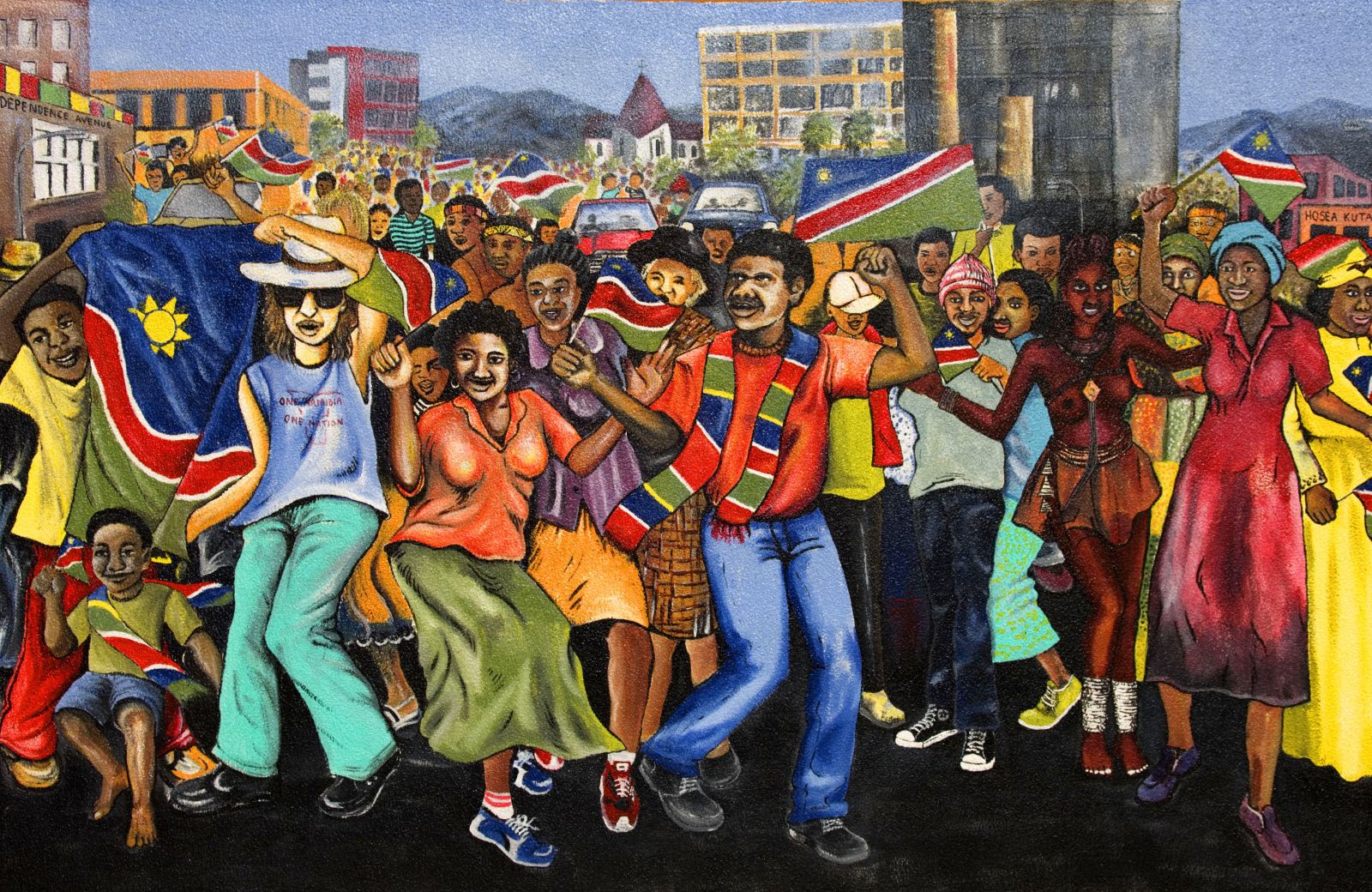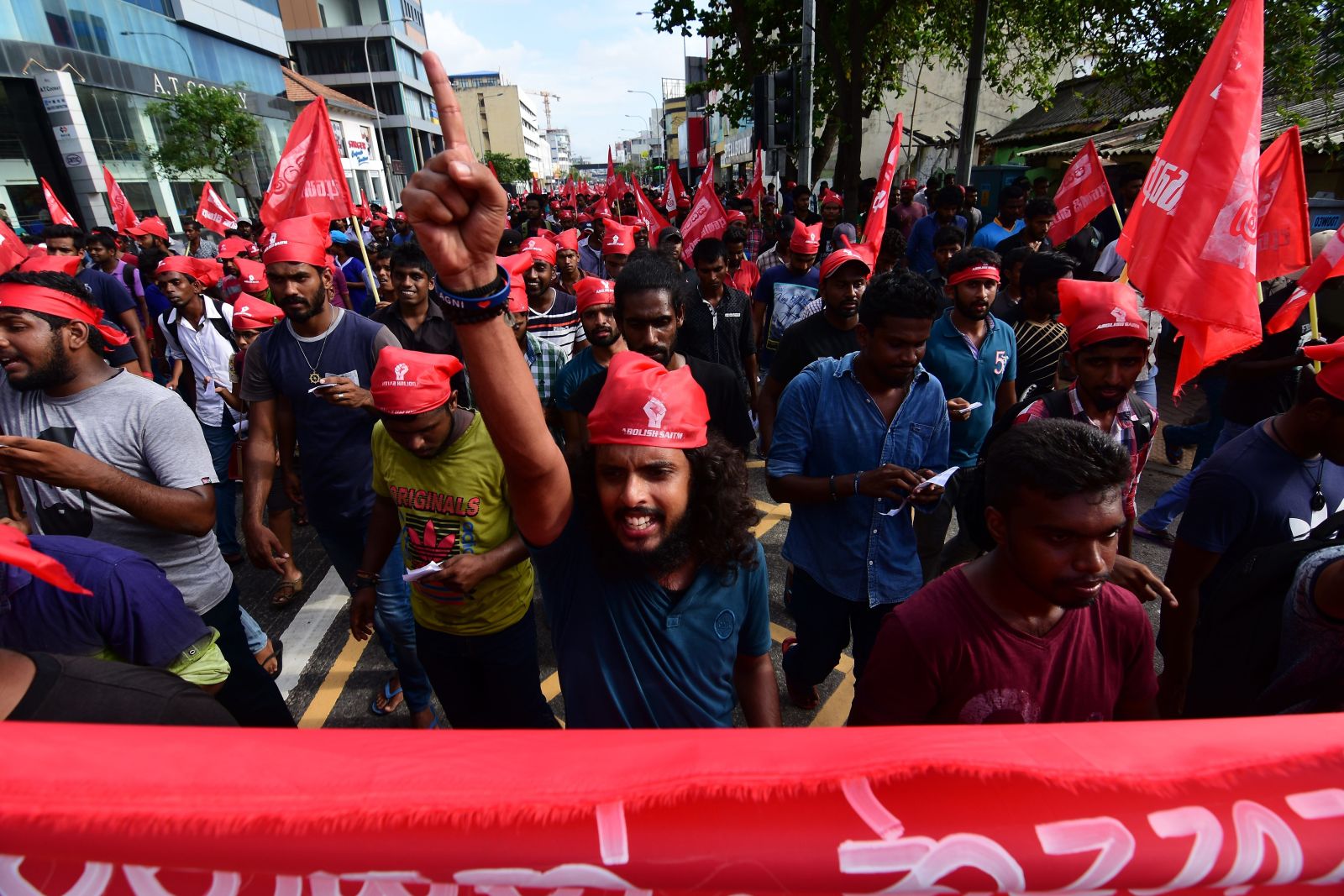Land restitution
Righting a wrong

National statistics document Namibia’s unequitable pattern of land ownership. Fewer than 5,000 (predominantly white) commercial farmers own 48 % of the land. About 35 % of the land is reserved for communal use by indigenous communities. More than 70 % of the population depend on it. The state holds another 17 % of the land.
This is inconsistent with stated national policy. The government’s declared intention is to transfer land to descendants of those who were dispossessed in colonial times. Its agenda includes resettlements of indigenous people as well as the voluntary transfers of commercial agricultural land. Not much progress has been made however. Land ownership remains heavily skewed in favour of the privileged few, who now include members of the political class (see box).
As a former colonial power, Germany bears a responsibility to support redressing the situation. From 1884 to 1915, the colony was called German South West Africa. German colonial rule was very brutal. The administration encouraged whites to set up farms on indigenous land. Resistance by local Ovaherero and Nama communities against forced expulsions triggered the first genocide of the 20th century in the years 1904 to 1908 (see Joshua Kwesi Aikins in Focus section of D+C/E+Z e-Paper 2017/11). The Damara were affected too. Survivors were detained in concentration camps and forced into native reserves. White farmers also systematically eliminated San communities (Bushmen).
Land grabs continued after South Africa occupied the territory in 1915 and, in 1919, became the mandatory power. Afrikaans-speaking white farmers moved to the “fifth province”. Expulsions and resettlements of indigenous communities continued until the 1960s under South Africa’s Bantustan Policy, which set aside reserves for specific ethnic groups. These areas were euphemistically called “tribal homelands”.
Independence was supposed to liberate the black communities and restore their dignity. In 1990, the liberation movement South West African People’s Organisation (SWAPO) formed the new government of a sovereign nation. Land ownership hardly changed, however, even though there was a promising start with a national land conference in 1991. Unfortunately, redistribution of land to the dispossessed failed miserably. The process was slow and far too often benefited politically connected persons who had no ancestral claims.
Dissatisfaction with the failed reform led to a second land conference in October 2018. It paid more attention to ancestral land claims than the first one. In February 2019, a 15-member Commission on Ancestral Land was appointed. In December 2019, the Commission recommended giving priority to the dispossessed. It stated: “Colonialism stripped people of their dignity and cultural rights and other fundamental rights, and [this] requires urgent systematic redress.” The Commission suggested to rely on “reparations from the former colonial powers” to strengthen land reform and restore social justice.
A role for Germany
The two former colonial powers are Germany and South Africa. Their legacy is certainly appalling. The South African government, however, is itself the result of a freedom struggle and refuses to be held accountable for the former Apartheid regime’s abusiveness. Of course, South Africa’s involvement does not lessen Germany’s responsibility in any way.
In mid-2015, a spokesperson of Germany’s Foreign Office acknowledged, after persistent questioning from a journalist, that imperial warfare in Namibia was tantamount to genocide. Since then, Germany and Namibia have been negotiating how to come to terms with the persisting injustice. Though Germany’s Federal Government has never agreed to reparations and avoids using the term, the Namibian Commission’s proposal deserves consideration. Germany could indeed provide funds for land redistribution. The money could be used to compensate expropriated farmers even if they do not wish to sell their land.
The legal foundation for such a land redistribution is in place. While the country’s constitution confirms that any property titles that existed at the time of independence are legally valid, its Article 16 states clearly: “The State or a competent body or organ authorised by law may expropriate property in the public interest subject to the payment of just compensation, in accordance with requirements and procedures to be determined by Act of Parliament”. Laws and regulations are in place, and in 2008, the High Court spelled out guidelines for enforcing them.
Funding a redistribution and expropriation policy along these lines would be a sensible first step. Next, Germany should then co-finance the indispensable investments in rural infrastructure and agricultural extension services. The idea would be to empower local communities in ways that allow them to fully benefit from resettlement. The Namibian government, for its part, would have to ensure that only the descendants of the dispossessed benefit from redistribution, but not politically-connected elites.
Both the German and the Namibian government would be wise to invest in this kind of policy. It would not only facilitate reconciliation between Germany and Namibia, but also between groups in Namibia – the truly dispossessed and those only pretending to be. Namibia would get a new start. The destructive legacy of skewed land ownership would be overcome.
Neither side should shy away from using the word “reparations.” For Germany, an obstacle may be that such a step might look like an irritating precedent to other former colonial powers. They do not want to pay compensations for past crimes (see Kehinde Andrews in Focus section of D+C/E+Z e-Paper 2017/11).
As Namibia’s Commission on Ancestral Land correctly stated, however, “the term reparation is used in a wide sense” in international law. It can stand for any measure that serves “to redress the various types of harms victims may have suffered”.
Land is identity, and stolen land translates into stolen identity. Property rights that were granted by a legal system that was only established after colonial land grabs may remain valid – but they are inherently unjust. It is necessary to right the wrongs of the past. The current talks between Germany and Namibia offer an historic opportunity to do so.
Henning Melber is director emeritus of the Dag Hammarskjöld Foundation in Uppsala, Sweden, and an extraordinary professor at the University of Pretoria and the University of the Free State in Bloemfontein. He is a member of South West African Organisation (SWAPO), having joined it in 1974.
henning.melber@nai.uu.se












